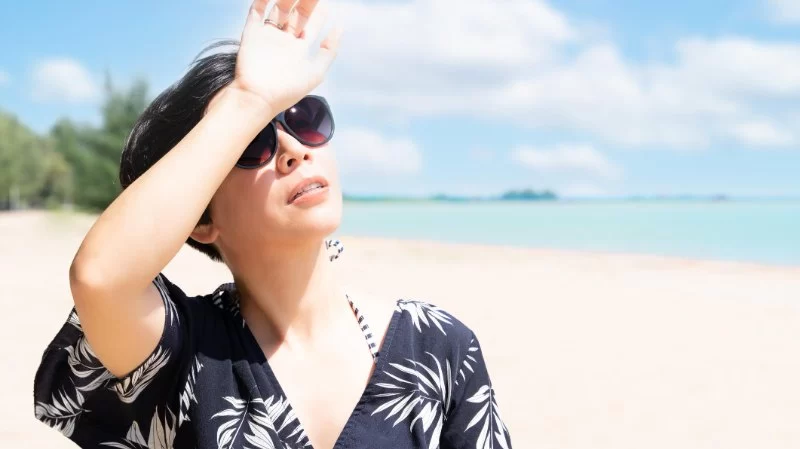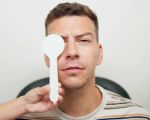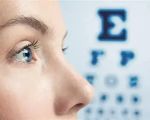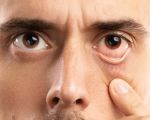
- why-uv-rays-are-dangerous
- how-uv-rays-affect-eyes-at-the-beach
- practical-ways-to-protect-your-eyes-from-uv-rays
- real-case-uv-eye-damage
- why-eye-docs-recommendations-matter
1. Why UV Rays Are Dangerous
Ultraviolet (UV) rays, invisible to the naked eye, are a form of electromagnetic radiation emitted by the sun. While we often associate UV rays with sunburns and skin cancer, their impact on the eyes can be equally severe. Prolonged exposure without protection increases the risk of cataracts, macular degeneration, and photokeratitis—commonly referred to as "sunburn of the eye."
According to the American Academy of Ophthalmology, UV damage is cumulative, meaning the effects add up over a lifetime. Beaches, with their wide reflective surfaces of sand and water, significantly amplify UV intensity, posing even greater danger to unprotected eyes.
2. How UV Rays Affect Eyes at the Beach
2.1 Reflection Intensifies Exposure
At the beach, UV exposure doesn’t just come directly from the sun. Sand can reflect up to 15% of UV rays, while water reflects around 10%. This creates a "double-hit" effect—your eyes are exposed to both direct and reflected radiation. Even on cloudy days, UV rays can penetrate through clouds, making eye protection a year-round concern.
2.2 Common Eye Conditions Caused by UV Exposure
Spending long hours at the beach without eye protection can result in conditions like photokeratitis—an acute, painful condition that mimics a sunburn on the cornea. Symptoms include red eyes, excessive tearing, blurry vision, and a gritty sensation. Long-term, chronic exposure can lead to pterygium (a growth on the white of the eye) or cataracts, especially in people who spend frequent time outdoors without UV-blocking eyewear.
3. Practical Ways to Protect Your Eyes from UV Rays
3.1 Invest in High-Quality Sunglasses
The most effective way to block harmful rays is to wear sunglasses that offer 100% UVA and UVB protection. Wraparound styles provide extra shielding from side reflections, which are common at beaches. Polarized lenses are also helpful, reducing glare off the water while enhancing contrast and visual clarity.
Look for labels that specifically state “UV 400” protection—it means the lenses block all light rays with wavelengths up to 400 nanometers, covering both UVA and UVB rays.
3.2 Wear a Wide-Brimmed Hat
A wide-brimmed hat adds a physical barrier to sun exposure. It doesn’t replace sunglasses but works in tandem to reduce the amount of UV light reaching your eyes by up to 50%. It’s a simple, stylish addition that provides meaningful protection.
3.3 Avoid Peak Sunlight Hours
UV radiation is strongest between 10 a.m. and 4 p.m. If possible, schedule beach time early in the morning or later in the afternoon. This small change significantly lowers your risk of overexposure—not just to your eyes, but also to your skin.
3.4 Use UV-Blocking Contact Lenses (if needed)
For contact lens wearers, certain lenses come with UV protection. However, they only protect the cornea and not the entire eye, so they should be used in addition to—not instead of—sunglasses. Brands offering UV-protected lenses include Acuvue and Bausch + Lomb.
4. Real Case: When a Beach Day Turned into an ER Visit
In 2023, a 28-year-old surfer from California ended up in the emergency room after experiencing intense eye pain and blurred vision following a full day at the beach without any eye protection. Diagnosed with photokeratitis, his condition took several days to heal, requiring complete darkness and prescribed ointments.
His story went viral on social media as a cautionary tale. Thousands shared similar experiences in the comments, with many stating they never realized UV rays could damage the eyes so severely. The lesson? Eye safety should be non-negotiable, especially in environments with intense sun and reflection like the beach.
5. Why Eye Docs Recommendations Matter
At Eye Docs, we understand that protecting your eyes isn’t just about avoiding discomfort—it's about preserving your long-term vision. Our experts carefully curate sunglasses and eye care products that meet stringent UV protection standards while fitting your lifestyle and aesthetic.
Whether you're looking for wraparound polarized glasses for water sports or fashionable, functional eyewear for lounging under the sun, Eye Docs has you covered. We also offer personalized advice, so you're not just shopping—you’re making informed choices to safeguard your sight.
Remember, every time you step out into the sun unprotected, you risk permanent damage to your vision. Choose quality. Choose protection. Choose Eye Docs.








